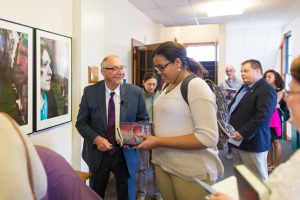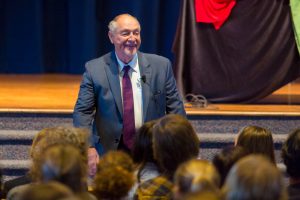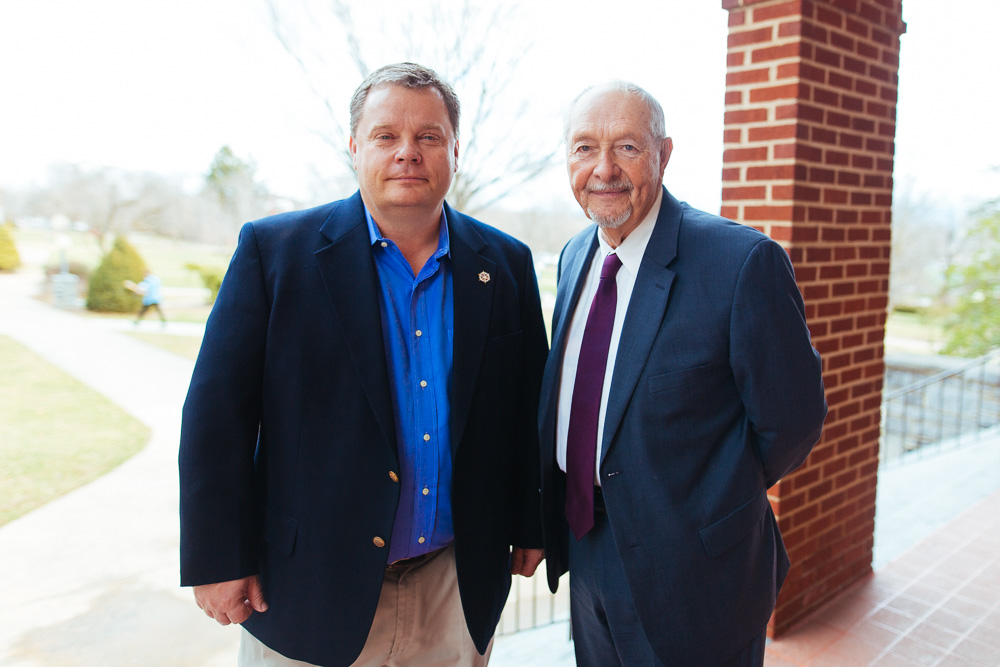Civil rights activist Bob Zellner is at it again—working for justice and equality. Zellner, 77, was the first white southerner on staff of the Student Non-Violent Coordinating Committee (SNCC)—the influential 1960s-era civil rights organization.
Now he has joined forces with Mayor Adam O’Neal, of Belhaven, North Carolina, to save rural hospitals. Belhaven’s Punga District Hospital closed after the non-profit hospital system Vidant Health bought it and later broke contractual agreements, according to O’Neal. Two residents have since died while waiting for transport to the nearest emergency room 30 miles away.

Zellner and O’Neal and their supporters have twice walked the 283-mile trek from North Carolina to Washington D.C. to raise awareness. Zellner also was arrested during a peaceful protest at the state capital in Raleigh. The self-declared radical and the white Republican politician seem an unlikely match. But O’Neal is fighting to protect the health care needs of his constituents—60 percent are African American. Zellner has dedicated his life to causes that benefit lower-income citizens.
Zellner and O’Neal are beginning a nationwide teaching tour focusing on the discrepancy in healthcare for low-income citizens and the importance of maintaining rural hospitals. The two activists gave talks and led discussions at Eastern Mennonite University Wednesday, Feb. 8.
Their visit was sponsored by Campus Ministries, Multicultural and International Student Services and the Black Student Union, and funded in part by student lecture series funds from the Student Government Association.
Living his convictions
Raleigh was Zellner’s eighteenth arrest since becoming an activist in the ‘60s. During those turbulent times, he was also shot at, beaten, sentenced to a chain gang, kept in a hotbox cell, hit by the full force of a fireman’s water hose and almost lynched. All because he believed it was his Christian duty to work for the rights of others and to help end racism and segregation.

“I grew up in LA … Lower Alabama,” said Zellner, smiling. “Daddy was in the Ku Klux Klan and Granddaddy was in the Ku Klux Klan and it was unlikely I would be in the Civil Rights Movement. But God moves in strange and mysterious ways.”
In an evening talk at EMU, Zellner shared some of his life story, including how his father left the Klan after becoming a Methodist minister and was disowned by parents and siblings. Years later, Bob Zellner’s grandfather threatened to shoot him if he marched into Birmingham. However, Zellner had decided as a teen “that I would not live my life in fear that someone might hurt me for some belief that I might have.”
Zellner also told about breaking the segregation laws in Mobile, Alabama, to hear Dr. Martin Luther King, Jr. speak. His escape from police was enabled by the Rev. Ralph Abernathy and Rosa Parks. Parks, who had been arrested in Mobile for not giving up her bus seat to a white man, told Zellner, “Bob, if you see something wrong, you have to do something about it.”
Zellner’s activism is chronicled in his memoir, “The Wrong Side of Murder Creek—A White Southerner in the Freedom Movement.” After SNCC became a black-only organization, he worked for the Southern Conference Educational Fund. Zellner co-founded the GROW Project— Grass Roots Organizing Work. GROW was successful in bringing poor white and black communities together to organize and work for better wages, health care, schools and housing.
Freedom struggle continues
“It looks like in some ways we’re moving back,” Zellner said of the country’s current political situation, though he and O’Neal are optimistic. More than 200 North Carolina grass roots organizations are collaborating in a progressive movement of fusion politics based on moral principles and equal rights. [Recent Washington Spectator coverage about The Rev. William J. Barber II provides an easy-to-read introductory article.]
On Feb 11, thousands of activists participated in the annual Moral March to Raleigh’s State Capitol led by the NAACP.
“Freedom is a constant struggle. We have to constantly re-up on that struggle,” Zellner said. “Brotherhood and sisterhood is not so wild a dream as those who profit by postponing it pretend.”

Thank you for your life of sacrifice and service, for standing up for equality in the face of much violence and personal risk. This tour inspires hope in us enough to believe that equality and affordable healthcare will become realities, not just pipe dreams.
I wonder what Bob Zellner has to do with the gospel of Christ? I can see that he is involved with left wing politics, but concerning Jesus? Does he even believe in the essentials of biblical Christianity? I would dare EMU get someone on the conservative evangelical side of Christianity.
Thank you for your interest. Bob Zellner’s father was a Methodist minister. He spoke about his faith during chapel, available here as a podcast. If you’d like to learn more about his relationship to his faith, you may be interested in purchasing his book, or reading more about him in the many online interviews he’s given.